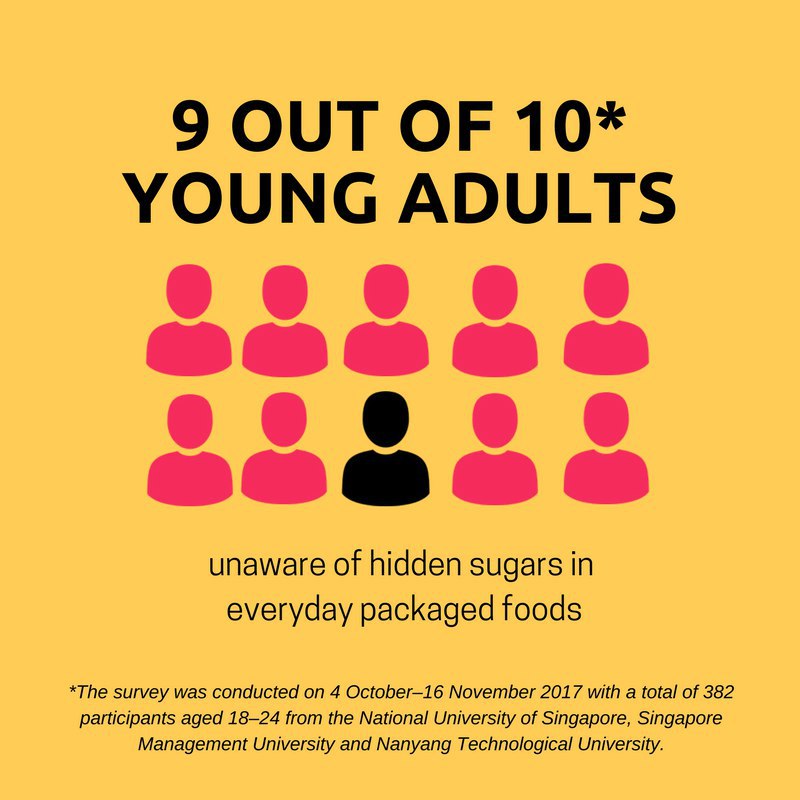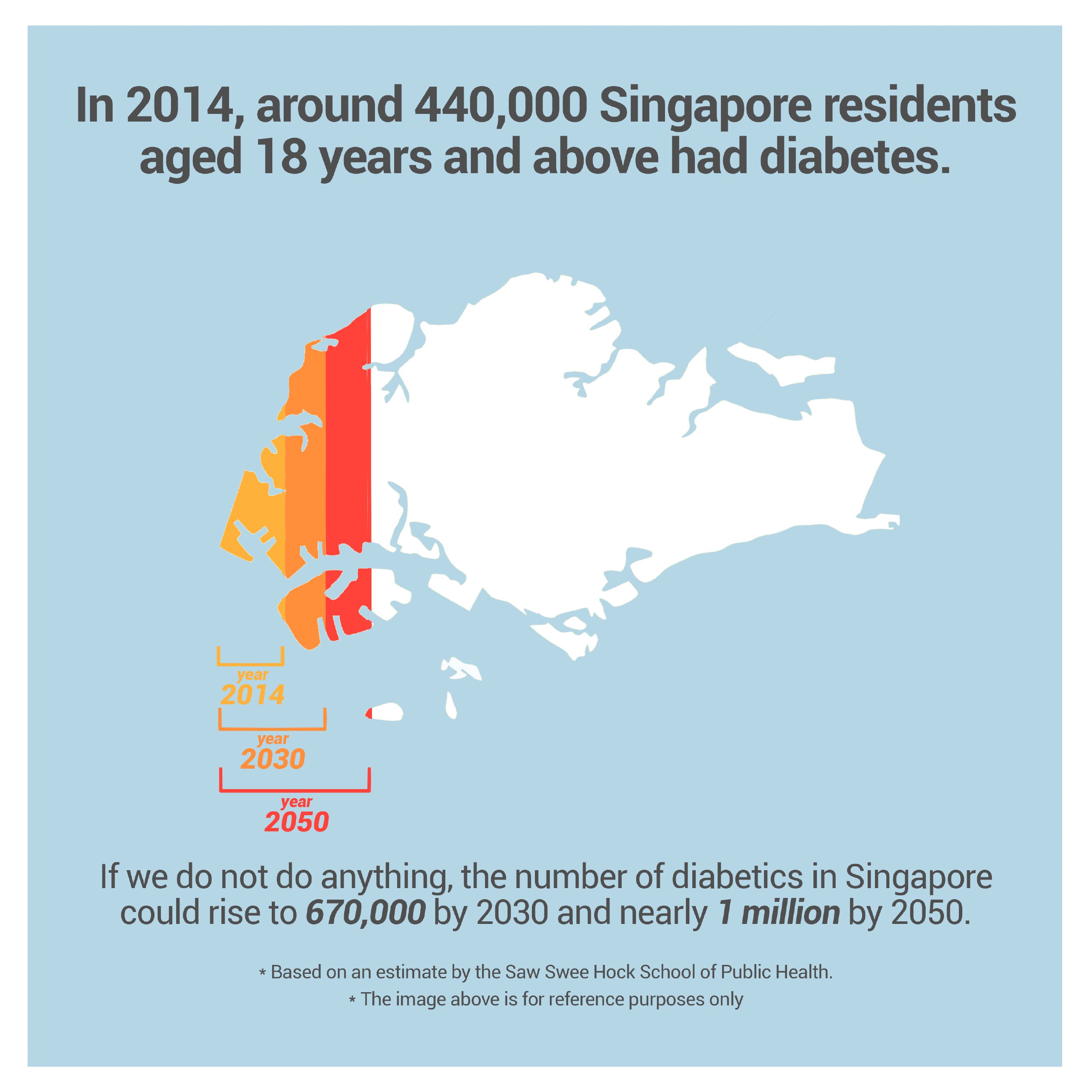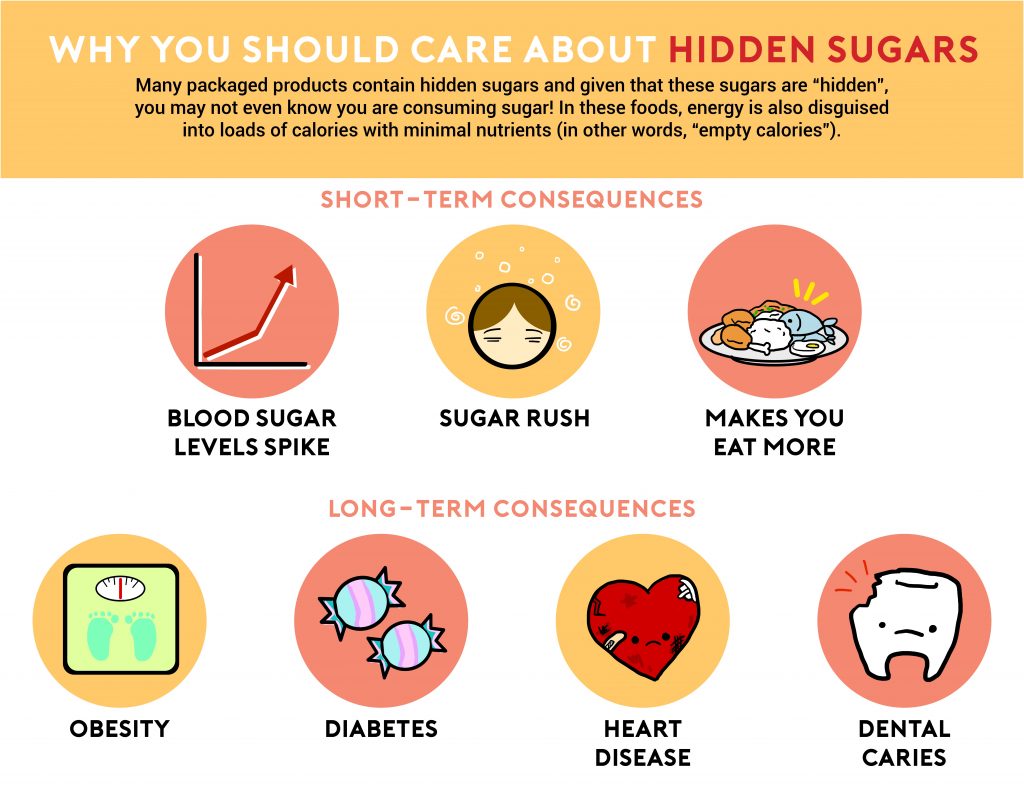90% of young adults have a low to moderate awareness of hidden sugars in everyday packaged food products, according to a survey by a team of Nanyang Technological University (NTU) students.


Hidden sugars are basically sugars that are either added to foods and beverages by the manufacturer, cook or consumer, or are sugars naturally present in honey, syrups, fruit juices and fruit juice concentrates. Most university students are unable to identify the hidden sugars when presented with eight different options of sugars. Additionally, they do not check the nutritional labels and ingredients list of packaged products because they lack time, and feel that it takes too much effort or have a tendency to forget.
Healthcare experts emphasise that young adults do not understand the severity of over-consuming sugars and tend to detach themselves from the likelihood of contracting sugar-related diseases such as diabetes, obesity and cardiovascular disease.
“Especially for the younger generation – I don’t think they are very well aware (of the health consequences). Even if they see it on TV, they don’t care,” said Ms Jaclyn Reutens, a dietitian at Aptima Nutrition & Sports Consultants.
National Healthcare Group Polyclinics Dietitian Ms Chan Sau Ling also highlighted that diabetes is a growing problem in Singapore today. Figures from the National Health Survey 2010 reveal that 1 in 9 Singapore residents aged 18–69 years were affected by diabetes. However, keeping the intake of refined sugars to less than 10% of total energy intake can reduce the risk of obesity and related diseases such as diabetes.

According to the National Nutrition Survey 2010, young adults aged 18–39 years consume sweetened drinks more often than older age groups, and the 18–29 years olds were most likely to eat sweet desserts and snacks. The number of diabetics in Singapore could rise to 670,000 by 2030 and nearly 1 million by 2050, based on an estimate by the NUS Saw Swee Hock School of Public Health.
In response to these findings, four final year students from NTU’s Wee Kim Wee School of Communication and Information have launched a hidden sugars awareness campaign titled Hidden Sugars, Hidden Risks. With advice from Ms Chan Sau Ling, Dietitian, National Healthcare Group Polyclinics on the nutritional content of different types of food, the campaign aims to encourage young adults aged 18 to 24 in Singapore to make more informed decisions when purchasing packaged food products.
Through online and offline efforts, the campaign educates young adults to check the ingredients list and nutritional panel on packaged food products before purchasing.
For more information, visit https://www.facebook.
More about the campaign activities
The campaign will engage with young adults both online and offline via Facebook and Instagram. The social media platforms serve to disseminate bite-sized educational information and hold interactive competitions to gain traction within young adults. In addition, a Telegram Chatbot will be launched in February 2018. Campus outreach events are held in three universities where students can collect free campaign starter kits. Activities include challenges with the campaign mascot (a giant life-sized cereal box). There is also a pop-up supermarket stand to allow participants to pick up common packaged food items and check its ingredients list
More About Partners
‘Hidden Sugars, Hidden Risks’ is powered by the Young ChangeMakers initiative, administered by the National Youth Council. It aims to build platforms where young people can congregate, connect and collaborate with like-minded individuals to make a difference to the community. The campaign is also kindly supported by Wee Kim Wee School of Communication and Information, Central Singapore Community Development Council and NUS Saw Swee Hock School of Public Health, a member entity of the National University Health System.


